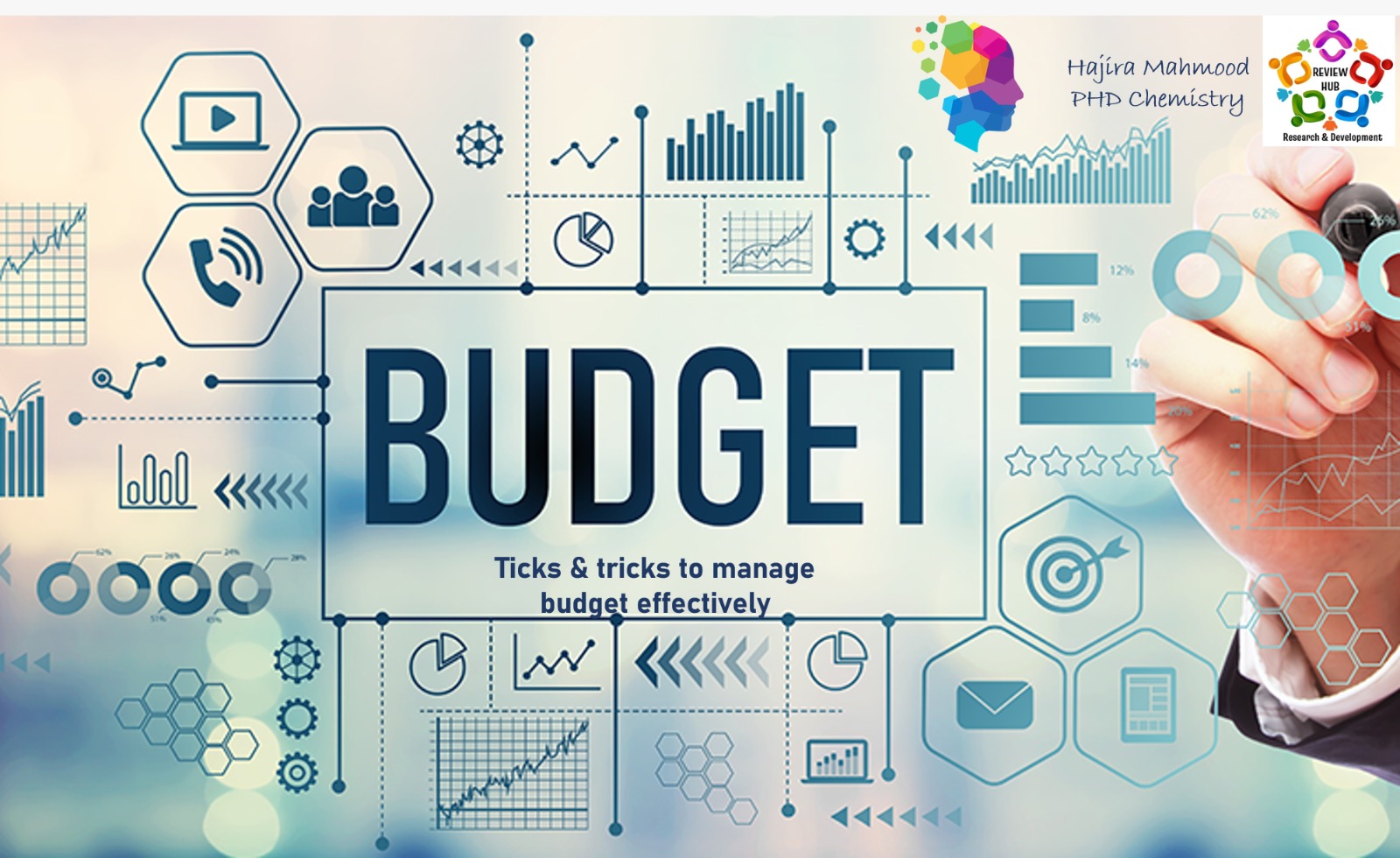How to Track and Manage Budget Effectively Throughout the Duration of a Research Project? To begin any research project, the first step is to establish a budget. But making a financial strategy and then forgetting about it is not enough. You can better manage your finances and make wise judgments throughout the campaign by keeping a close eye on your budget. You might find possible areas where you are overpaying or underspending by keeping track of your expenses.
Author: Hajira Mahmood
Finding Strategies at a Low Cost and keeping an eye on your spending allows you to assess which tactics are yielding the best outcomes within a certain budget. Researchers can track and manage their budget effectively throughout the duration of a research project by following these steps:
1. Develop a Detailed Budget Plan
At the beginning of the research project, create a comprehensive budget plan that includes all anticipated expenses, such as personnel, equipment, supplies, travel, and data analysis. Break down the budget into specific categories to ensure clarity and accuracy.
2. Monitor and Record Expenses
Keep a record of all project-related expenses, including receipts, invoices, and financial transactions. Regularly update the budget spreadsheet or financial management software with the actual expenditures.
3. Compare Actual Spending to the Budget Plan
Regularly compare the actual spending to the planned budget. This helps identify any discrepancies or deviations from the original plan. Analyze the reasons for any variances and determine if adjustments need to be made.
4. Conduct Periodic Budget Reviews
Schedule regular budget reviews to assess the financial status of the project. This can be done monthly, quarterly, or at specific project milestones. During these reviews, analyze the spending patterns, project progress, and remaining funds.
5. Adjust the Budget as Needed
If there are significant deviations from the planned budget, consider making adjustments. This may involve reallocating funds within different budget categories or seeking additional funding if necessary. Ensure that any changes are documented and approved by the appropriate stakeholders.
6. Seek Procurement Efficiencies
Look for opportunities to optimize procurement processes and negotiate better deals with suppliers. This can help stretch the budget and ensure that resources are acquired at the most reasonable prices.
7. Communicate with Stakeholders
Maintain open communication with project stakeholders, including funding agencies, collaborators, and team members, regarding the budget status. Provide regular updates on expenditure, any changes made to the budget, and any potential impacts on the project timeline or deliverables.
8. Document and Report Financial Information
Maintain accurate and up-to-date financial records throughout the project. This includes keeping track of all financial transactions, documenting any budget revisions, and preparing financial reports as required by funding agencies or institutional guidelines.
By following these steps, researchers can effectively track and manage their budget, ensuring that resources are utilized efficiently and project finances are well-controlled throughout the research project’s duration.
Also read: Sustainability: Shaping a Greener Tomorrow
Follow Us on

